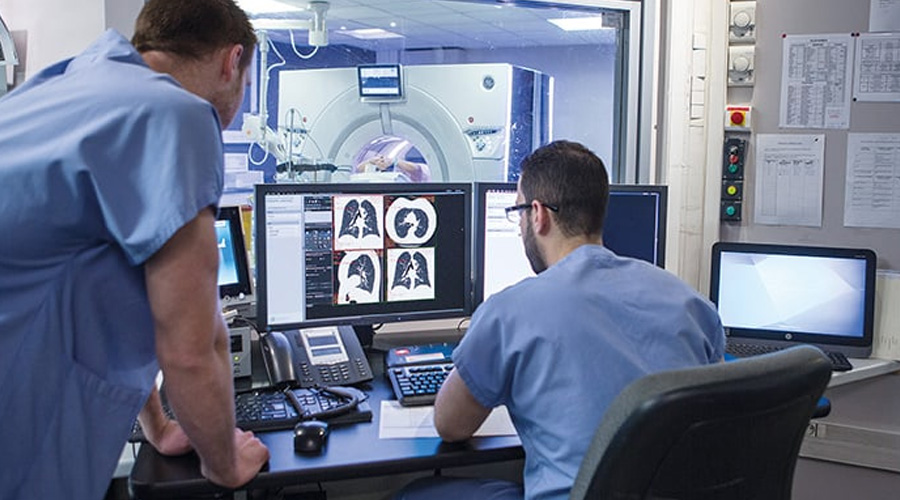
AI-Powered Diagnosis Revolutionizes HealthcareAI-Powered Diagnosis Revolutionizes Healthcare Artificial Intelligence (AI) is rapidly transforming the healthcare industry, and one of its most impactful applications is in medical diagnosis. AI-powered systems are enabling doctors to identify and diagnose diseases more accurately, quickly, and efficiently than ever before. Enhanced Accuracy: AI algorithms can analyze vast amounts of patient data, including medical history, lab results, and imaging scans. This data is then used to identify patterns and correlations that may be invisible to the human eye. AI-powered diagnosis tools can detect subtle signs of disease, even in early stages, when treatment is most effective. Increased Speed: AI systems can process data at lightning speed, significantly reducing the time it takes to diagnose a condition. This can be critical in emergency situations or when a patient is experiencing rapidly progressing symptoms. AI-powered diagnosis tools can help doctors make quick and accurate decisions, potentially saving lives. Improved Efficiency: AI can automate many routine tasks in the diagnostic process, such as interpreting medical images or searching through patient records. This frees up doctors’ time to focus on providing personalized care to their patients. AI-powered diagnosis tools can also help reduce costs and streamline workflow within healthcare systems. Early Detection: AI-powered systems can identify potential health risks and diseases even before they manifest in noticeable symptoms. By analyzing genetic data, lifestyle factors, and environmental exposures, AI can create personalized risk profiles for each patient. This early detection can enable proactive interventions and lifestyle changes to prevent or minimize the severity of future health conditions. Empowering Patients: AI-powered diagnosis tools are also empowering patients to take a more active role in their healthcare. By providing access to AI-powered symptom checkers and health monitoring apps, patients can monitor their own health, identify potential issues early, and seek professional medical attention when necessary. This can lead to better health outcomes and improved patient satisfaction. Examples of AI-Powered Diagnosis Tools: * IBM Watson Health: A cognitive computing platform that analyzes patient data to provide treatment recommendations and identifies potential health risks. * Google DeepMind Health: A collaboration between Google and the NHS that develops AI-powered tools for diagnosing eye diseases and predicting the likelihood of acute kidney injury. * Arterys: An AI-powered medical imaging platform that automatically detects abnormalities in CT scans and MRIs. * PathAI: An AI-powered pathology platform that analyzes digital pathology slides to diagnose diseases with greater accuracy and efficiency. Conclusion: AI-powered diagnosis is revolutionizing healthcare by enabling more accurate, faster, and efficient diagnosis of diseases. It enhances the capabilities of medical professionals, empowers patients, and holds the potential to improve health outcomes for millions of people worldwide. As AI technology continues to advance, we can expect even more innovative and groundbreaking applications in the field of medical diagnosis in the years to come.
Posted inNews